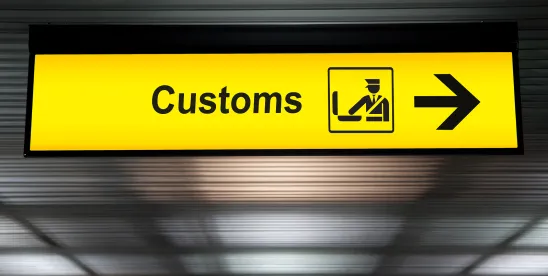As an accompaniment to our biweekly series on What Every Multinational Should Know About various international trade, enforcement, and compliance topics, below find an update to our “Five Compliance Best Practices” series, which provides quick-hit advice on how organizations (particularly multinational companies) can implement compliance best practices to enhance their compliance programs and internal controls.
Following on our piece from two weeks ago, “Five Compliance Best Practices for … Customs Broker Management (Part I),” here are five more key areas to examine for dealings with customs brokers and freight forwarders:
- Coordinate with Customs Brokers and Freight Forwarders: Importers should engage with their freight forwarders and customs brokers to determine whether Customs requirements are being consistently followed. This includes regular downloads of data regarding imports so you can meet your recordkeeping responsibilities. And if you are not engaged in regular review of information submitted by customs brokers and freight forwarders on your behalf, you should set up procedures to do so.
- Review Your Customs Broker Power of Attorney to Ensure it Meets Your Needs: Although it is common to grant a customs power of attorney to customs brokers, these grants should be monitored to ensure they are accurate and there are no unnecessary legacy authorizations in place. Reviewing ACE data allows for the ready identification of all customs brokers who have made entries on behalf of an importer of record by reviewing the filer codes on the entries. Any unneeded powers of attorney should be revoked. In addition, any unduly broad provisions, such as POAs with indefinite duration or ones that grant POA attorneys for non-customs matters, should be amended.
- Set Yourself up in ACE as a Contact: If your company does not have anyone signed up for (and familiar with) ACE, importers that have not signed up for ACE should do so. Advantages include the elimination of paper entry summaries, decreased administrative costs, enhanced ACE report capabilities, and remote location filings for entry summaries.
- Ensure There are Reliable Conduits for Receiving and Acting on Customs Inquiries: Once you are signed up in ACE, you can designate a person to receive Customs communications at the company. This is preferable to having the customs broker be the only entity receiving reports and then forwarding them to you, which can lead to missed communications and deadlines.
- Run Regular ACE Reports: ACE is not just a portal for clearing exports; it is a comprehensive accounting (with a few minor exceptions) of every import made by an importer. Learning how ACE works, and becoming familiar with its many data query tools, allows importers to identify tariff-saving opportunities, find anomalies in submitted data, and view the same data that Customs has on your own imports. If your company does not have someone who is familiar with running such reports, request them from your customs broker.




 />i
/>i

